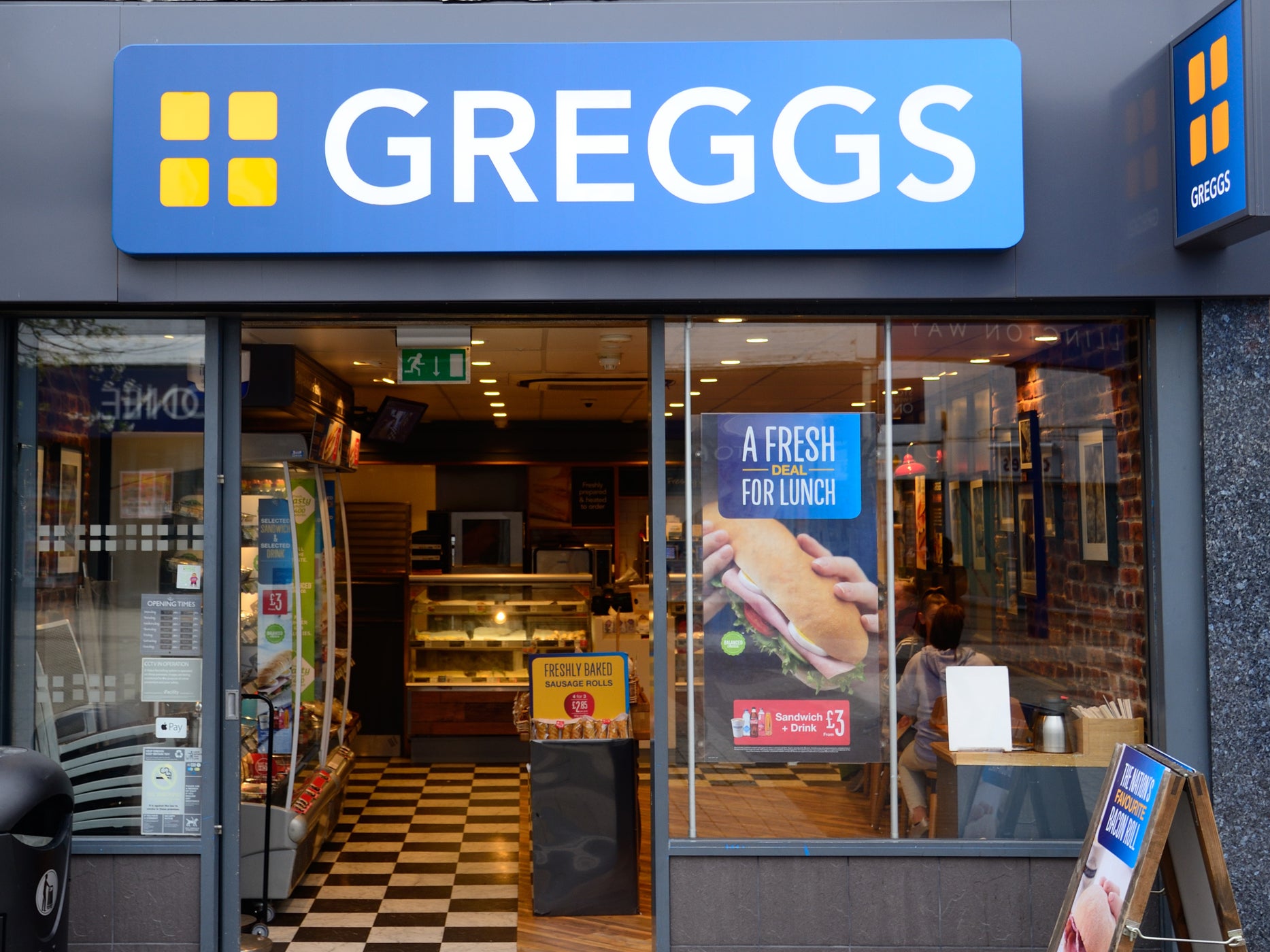Other companies could learn a thing or two from Greggs’ success
With the surging popularity of its new vegan options, the convenience snacking shop has enjoyed a phenomenal year, and has chosen to share its profits with its employees, writes Chris Blackhurst


One of the highlights of the journalistic year on the business pages is the reporting of Greggs results.
Why? Because the announcement is usually accompanied by a box of treats from the food chain. The culinary snobs among you may mock but when you’re a tired, overworked, hungry hack, a delivery of free snacks is a delight. Other companies adopt similar ruses, but not many.
In fact, it’s amazing how few do. They may be put off by the cost, by the logistics of arranging the parcel, by health and safety issues and, of course, by the risk they may be accused of trying to bribe journalists.
In my experience, it’s never been seen as anything more than a goodwill gesture, much appreciated. And let’s face it, given some attitudes towards Greggs, there is every likelihood some of the snootier scribes had never been to one of their branches and sampled their wares, so the parcel is by way of education.
The reality in Greggs’ instance, though, was that if the case of pastries and buns is a bung they need not bother: in recent years, Greggs’ performance has been so stellar that no amount of inducement in return for favourable reporting is required.
This week, it was disclosed that the high street bakery chain’s staff are to receive a £300 one-off payment after what the firm said had been a “phenomenal year”.
Presumably, news organisations can look forward to a bumper hamper come March when what Greggs is already trailing as better than expected profits are unveiled. The vegan sausage roll, now joined by the vegan steak bake, have leapt to the top of the sales charts, joining the Greggs traditional meat sausage rolls and steak bakes.
The payment to staff is on top of a profit-sharing scheme that sees 10 per cent of profits distributed among employees. They also enjoy full union recognition and Greggs seemingly has no problem in paying them above the national minimum wage. It’s a company that clearly believes in doing things right.
And doing them well. Last year, it opened its 2,000th store, and posted another surge in profits. This, after breaking through the £1bn sales barrier in 2018. Another 100 shops are due to open this year.
Maureen Hinton, a global retail research director at Global Data, told the BBC: “This is a great way for Greggs to maintain the loyalty of the workforce and creates a very inclusive culture, as the benefits of its success is being shared with everyone.
“It also reflects a growing trend across businesses of being ethical and inclusive and, of course, is good PR – something Greggs is excellent at.”
The sausage rolls come in clear, unfussy bags – fancy packaging is for other retailers, who, I venture, will not be performing anywhere near as successfully
Other companies, please note. Be advised, too, that Greggs does something else: it does simple and convenience. It doesn’t sell frills or airs and graces. The sausage rolls come in clear, unfussy bags – fancy packaging is for other retailers, who, I venture, will not be performing anywhere near as successfully.
Greggs’ brilliance is down to one man. When Roger Whiteside, now 61, took over as CEO in 2013 Greggs was in pieces. It had been clobbered by recession and was heading down.
What did Roger do? He didn’t sit behind a big desk in a distant head office but got out, onto the shop floor, shadowing a branch manager for a fortnight. What he noticed was that customers did not want what Greggs thought they desired. Ever since the first Greggs opened on Tyneside in 1939, the company had been pushing bread.
Whiteside observed that they were ignoring bread and preferring sandwiches, bakes and other snacks they could eat on the go, and coffee.
Out went the bread, and into redesigned shops came more snack foods and improved coffee. For inspiration, Whiteside turned to smarter London rivals such as Pret, but he believed in offering similar quality for less. He applied the same principle that has driven Aldi and Lidl – that low price doesn’t have to mean low quality.
Greggs aims to appeal to everyone: young and old, rich and poor, diet-conscious and those who aren’t so bothered by calories.
To think, it could have been so different for another troubled chain. Whiteside learned his trade at a retailer that also once mastered the art of doing the simple things well and was the choice of Everyman. For 20 years, he worked at Marks & Spencer, ending up as head of its food division and launching Simply Food, its food-only stores.
It was not enough, however. M&S was very good at selling food, and convenience fare at that – it was the first to provide packaged sandwiches. Often, though, that food supposedly targeted at those in a hurry was tucked away, down the stairs in the basement. Whiteside brought it upstairs.
The move was a success. Then, he went further and suggested M&S develop a chain of standalone sandwich shops. The conservative M&S bosses balked at this and refused. Pret nipped in, and the rest is high-street history.
Next, Whiteside proposed selling groceries online. The chiefs said no to that idea, too, so he left and assisted in the creation of Ocado (belatedly, this year, in a nod to Whiteside’s vision, M&S is beginning a partnership with Ocado).
After Ocado, came Greggs. Roger Whiteside: the Greggs boss that M&S never had.
Join our commenting forum
Join thought-provoking conversations, follow other Independent readers and see their replies
Comments